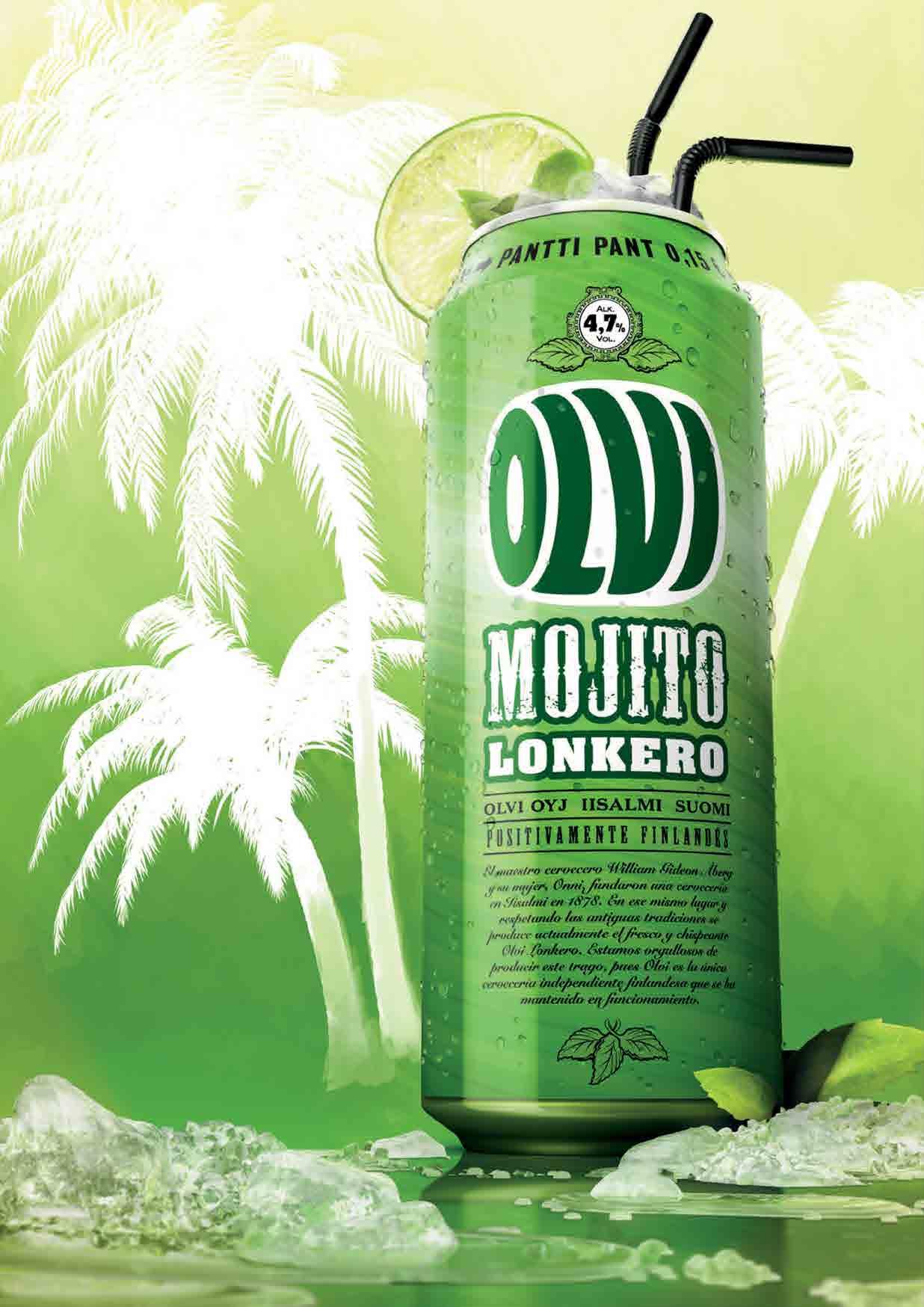
4 minute read
A multi-local approach Olvi Oyj
A MULTI-LOCAL APPROACH
Finnish beverage company Olvi Oyj focuses on agility, flexibility and a multi-local approach. Abigail Saltmarsh finds out more about the operation.


Finnish brewer Olvi Oyj has a heritage stretching back through the decades and prides itself on its “multi-local” approach. This, together with its emphasis on agility and flexibility, has seen it develop a strong business – one from which it hopes to continue to develop and grow.
Marketing director Olli Heikkilä says the company is still headquartered at the site from which it launched back in 1878.
“Olvi is still located in Iisalmi, Finland, in the very same building where brewing started and the company was founded 134 years ago. Nowadays not even the offices fit into this building, where 134 years ago we had the brewing house and warehouse, as well as the offices.
“We have expanded production several times during the years. This year we have also invested in the facilities, adding more fermenting tanks and additional canning capacity. A new filtering system has also just been built.”
A growing operation
The company was founded in 1878 by master brewer William Gideon Åberg and his wife Onni. Their aim was to combat drunkenness. In order to do this, they wanted to offer milder alternatives to those with a thirst for alcohol.
At the time there were about 78 breweries operating in Finland. Olvi is the only one of them that remains an independent Finnish company.
Today, the Olvi Group comprises five brewing companies; one in Finland, one in Belarus and one in each Baltic state. Its subsidiaries are AS A. Le Coq, A/S Cesu Alus, Volfas Engelman and OAO Lidskoe Pivo. The Olvi Group employs more than 2,000 people.
“We have 1,939 employees in five countries: Finland, Estonia, Latvia, Lithuania and Belarus,” says Mr Heikkilä. “Output was 518 million litres last year. This year it will be more. Turnover was €285 million last year – again, this year it will be more.”
Renowned for beer
Olvi operates in around 10 categories, he continues. These include beer, cider and flavoured alcoholic beverages, as well as mineral waters (still and sparkling), soft drinks, juice, functional drinks, energy drinks and kvass.
“But Olvi is known for its beer. The parent company has manufactured beer for 134



years but most of the subsidiaries are even older. Estonia’s A. Le Coq is 204 years old. The oldest is Latvia’s Cesu Alus, which is 422 years old.
“The most international beer in Olvi Group is Sandels. Sandels is available in Finland, Sweden, Estonia, Latvia, Lithuania, Russia, Spain and Belarus.”
Local brands
This is where Olvi’s “multi-local” approach comes in – and where it has seen such great success.
“The Olvi Group operates locally in all five countries and we call ourselves multi-local. Our position in Finland is third, in Estonia we are first. In Latvia, we are in second position, while we are third in Lithuania and second in Belarus.
“We have only two brands that are available in all these countries. The beer brand Sandels and the cider brand Fizz. All other brands are local or available in some of the countries, but not all of them.”
He goes on: “Olvi Group operates the opposite way to big brewing companies. We have local brands, which have long heritage.
“For example, in Latvia our brand Cesu Alus was founded in the year 1590. Our subsidiary AS Cesu Alus has the same name. Also, we operate with a local CEO and management team in each of these countries.
“This helps us to know local consumers and their habits but also to know local customers. Local beer brands have a strong position in almost every country globally. We believe this will continue.”
Strong future
As beverage consumption grows and consumers increasingly desire variety, Olvi is determined to keep up with market trends and demands. Packaging design is also vital and remains a major focus.
“Packaging is the most important advertisement for a product. This year we have invested especially heavily in package design,” he says. “A good package sells itself and the Olvi Group uses the best design partners in each country.”
Logistics is also important. The company maintains its own trucks in each country.
“In Finland we have around 75 trucks. These are operated and owned by independent entrepreneurs but they only carry Olvi’s products,” he adds.
Together with product development, investment in production and market knowledge, these areas will also remain part of the strategy as the company expands.
“Growth is in Olvi’s future,” says Mr Heikkilä. “This may be both organic and through strategic acquisition.” n













